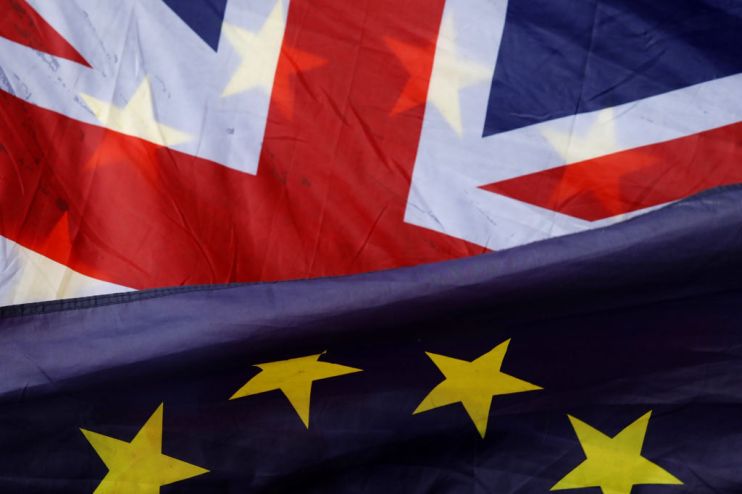‘We cannot go on as we are’: UK outlines proposed changes to Northern Ireland Protocol

The UK has today outlined proposed changes to the post-Brexit Northern Ireland Protocol, with a cabinet minister saying that “we cannot go on as we are”.
The move is set to ignite a furious row with the EU, with one of its top officials saying there is no room for renegotiation of the protocol.
Northern Ireland secretary Brandon Lewis said the UK government believes there are grounds to trigger Article 16 of the treaty and override parts of the protocol unilaterally, but that this step will not yet be taken.
A command paper written by UK-EU minister Lord David Frost instead calls for the elimination of the vast majority of checks on goods going between Great Britain and Northern Ireland to ease economic and civil pressures.
The proposals are set to put the UK on a collision course with the EU, with officials and member states saying previously they do not want to change any parts of the protocol.
“We believe such change is necessary to deal with the situation we must face,” Lewis said.
“We must provide certainty and stability for business as we do so.”
An EU insider told Sky News that there is “zero chance” of Brussels agreeing to any changes.
European Commission vice president Maros Sefcovic said the EU was not willing to change the terms of the protocol.
“We will continue to engage with the UK, also on the suggestions made today,” he said.
“We are ready to continue to seek creative solutions, within the framework of the protocol, in the interest of all communities in Northern Ireland.
“However, we will not agree to a renegotiation of the protocol.”
Northern Ireland still follows the EU’s custom union and single market rules, unlike the rest of the UK, creating a so-called border in the Irish Sea.
The UK wants the EU to adopt less stringent checks on goods going from Great Britain to Northern Ireland to minimise economic and political disruption, while Brussels does not want unauthorised goods to enter its single market.
The protocol has been met with increasing fury by some sections of the Northern Ireland unionist community as they say it separates the region from the rest of the UK.
Frost’s plan to rewrite the post-Brexit arrangement would see an “honesty box” approach for exporters in Great Britain, which would see them declare if their goods are intended only for sale in Northern Ireland and therefore can skip customs checks.
This would be for things like agrifoods, medicines and pets.
He also called for the European Court of Justice to no longer have the right to oversee the treaty and for an independent arbitration panel to instead take up this role.
The UK is also calling for a “standstill” to the protocol, which will ensure new customs checks are not imposed when several grace periods end in September.
“As we have sought to operate the protocol, it is clear that its burdens have been the source of considerable – and ongoing – disruption to lives and livelihoods,” Frost said.
“We have seen reductions in supermarket product lines. We have seen more than 200 suppliers decide they would no longer sell to Northern Ireland.
“We have seen difficulties not just on the famous chilled meats but also on medicines, on pets, on movements of live animals, on seeds and plants.
“Nowhere is this more visible than in the fact that the Northern Ireland executive conducts 20 per cent of all the EU documentary checks on products of animal origin – despite a population of only 1.8m people.”
Brussels argues that it has followed the protocol to the letter of the law and that all current checks should have been foreseen.
French President Emmanuel Macron said before last month’s G7 summit that “nothing is negotiable” when it came to the text of the protocol.
“We have a protocol,” he said.
“If after six months you say we cannot respect what was negotiated, then that says nothing can be respected. I believe in the weight of a treaty, I believe in taking a serious approach.
“Nothing is negotiable. Everything is applicable.”